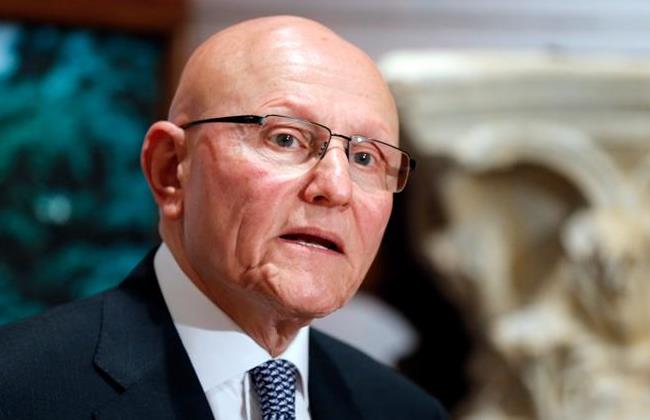Lebanese PM, Tammam Salam : Beirut bank bombing harms national security
By Tom Perry Reuters, Beirut Monday, 13 June 2016
Lebanon’s prime minister said on Monday a bomb attack at a major bank had harmed national security after an incident seen as a dangerous escalation of a crisis over a US law targeting the finances of Shiite group Hezbollah. The bombing outside the main Blom Bank building in Beirut on Sunday night, which caused damage but no fatalities, followed the closure of accounts considered to be linked to the group by banks afraid of being shut out of the international financial system. Noone has claimed responsibility for the attack. Hezbollah, proscribed by the United States as a terrorist organization and fighting in the civil in neighboring Syria as a vital ally of President Bashar al-Assad, reacted angrily last month to the US measures aimed at cutting off its funding.
The US law, passed in December, threatens to bar from the American financial market any bank that knowingly engages with Hezbollah. The group has not commented on the bombing. The US law has ignited an unprecedented standoff between the central bank and Hezbollah, which views it as a breach of sovereignty. The banks say they have no choice. Blom Bank has closed more accounts than other banks as a result of the legislation, Lebanese officials say. At a meeting with the finance minister and central bank governor, Prime Minister Tammam Salam said the attack “rose to the level of damaging the national security of Lebanon”. The banking sector was “the fundamental dynamo” of the economy and “one of the main pillars of the state in light of the paralysis suffered by the constitutional institutions”, he added, according to a government statement. Meanwhile, the Association of banks in Lebanon said the attack targeting Blom Bank hit the entire banking sector and aims to destabilize economy.
Central bank role
The central bank is widely seen as one of the only effective institutions in the weak state afflicted by political crisis since the onset of the Syria war in 2011. The banking sector is vitally important to Lebanon as a conduit for billions of dollars of annual remittances that keep its economy afloat. Monday’s government statement expressed confidence in central bank measures taken to preserve the financial sector’s immunity and credibility.
The US law poses an unprecedented financial challenge to the powerful Iranian-backed Hezbollah, which dominates Lebanon and has ministers in Salam’s unity government. Though analysts say Hezbollah itself can operate without bank accounts, the situation is seen as carrying a political cost as it affects its support base in the Shiite community. Hospitals are among social institutions deemed linked to Hezbollah that have had their accounts closed, sources familiar with the matter say. There is also a risk to institutions and individuals dealing with such hospitals, including their staff, insurance firms and suppliers of medical equipment. Societies affiliated to Hezbollah run hospitals, schools and other social institutions and the group says the measures are targeting the entire Shi’ite community. “They won a military war, they won a political war, but they cannot win a financial war,” said one Lebanese banker, discussing the matter on condition of anonymity. “They have to find ways to work in the shadows but the problem is that whoever deals with them will be under scrutiny.”
“The banks have no choice. They will not accept not to implement the sanctions because for them their survival is more important. If the Americans say to a bank: ‘you are out of the banking system’, the bank will default because it will be shut down from transactions in dollars,” the banker added. When the law first came into effect, Lebanese banks began closing accounts, including of Hezbollah officials, themselves. The central bank subsequently issued a directive requiring the banks to refer accounts considered linked to Hezbollah to an investigative unit before any measure is taken.
In a statement issued last week, Hezbollah’s parliamentary bloc stepped up its attack on central bank governor Riad Salameh for “ambiguous and suspicious” statements, and said Hezbollah’s education and health institutions could not be undermined. In an interview with CNBC last week, Salameh said the central bank was making sure banks had really studied account activity before any decisions are taken.”The law is being implemented,” he said. Parliament Speaker Nabih Berri, a Shi’ite politician and Hezbollah ally, said the attack on Blom Bank had targeted “Lebanon firstly, and Hezbollah secondly”. Nabil Boumonsef, a commentator with An-Nahar newspaper, said the bombing meant the crisis had now become a security issue. “Its danger is that it is connected to the most important, and I can even say the last bastion of protection for Lebanon’s social, political and economic stability – the banking sector.”






















